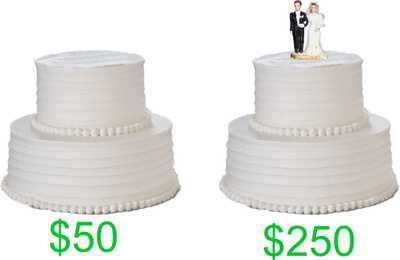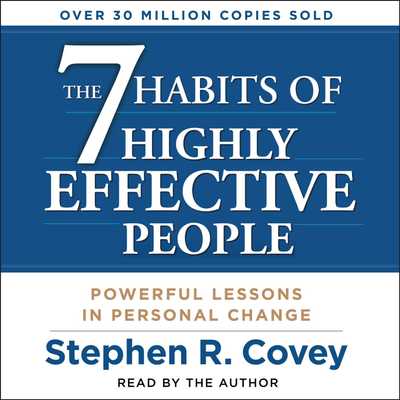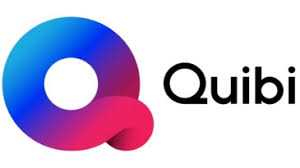The Anxiety of Having Your Idea Stolen and Why It Could Be a Good Thing
June 16, 2020
Hey, what's up? It’s Jordan the Millionaire Millennial and I want to go over a common concern that people have when sharing ideas. The core concern is how to stop someone from stealing your product idea and then going off and making it their own. I want to address why you actually don't really need to worry about that happening and if it did, what you should actually do at that point.
First and most important step when wanting to build or sell a product is to gauge the market. To actually see if people want or need what you are trying to sell. You cannot just make a judgment of the market based on a couple people, you will need to have several dozen at least.
Since you are exposing your idea to so many different people you may fear that some of them will take your idea and run with it. They're going to make the product and steal all your thunder before you can even get your product out there. This fear is reasonable and can happen, but honestly I see this as a good thing and let me explain why.
I know it doesn't sound good, but hear me out. If someone from the market you are looking into is willing to take your idea, build it, do the research, market it and finally sell it, than that probably means it's a good idea! I mean it's a prime testament to how good your idea is and it's validity when trying to sell it. Now just because they have been able to successfully sell that product does not mean you cannot profit off your own idea.
There are tons of duplicate products out there that do the exact same thing and are still extremely profitable. What matters most when selling the product is how you market it. A great example of this would be wedding cakes. Putting a label on a cake such as "wedding" or "bridal" and it increases the value of the cake by over 100%.

If you search for white cake online you can find it for a relatively decent price. While if you were to search for a "wedding" cake, you could find something very similar to that white cake, but it would be double, triple, or even 5X the price. The prime difference comes from how those cakes were marketed, not saying there isn't some slight difference between them (maybe a topper or something), but it still does not justify the cost difference.
This is why I am not too concerned about someone stealing my idea, in fact, I have been pretty open with an idea I had shared on my YouTube channel. The product, in concept, will automatically draw money out of my checking account every week and will then automatically invest it into a portfolio that I determine. On top of that, it will re-balance that portfolio every week.
I don't know how much you would charge for it and all of the other small kinks but it would be a wonderful product! This has been on my mind now for a while and if no one ends up making the product I will probably end up making it myself. Again, this is an example of me sharing my idea to see if this is something people would want, and if somebody were to make this I would still be willing to buy the product.
However, I can almost guarantee that no one reading this will end up making this product for two reasons:
- It's pretty complicated
- It's kind of hard.
So I know with almost 100% certainty that no one will go do this; however, if anyone reading this ends up creating the product, DM me! I'll be your first customer. ;)
This will also validate that my idea is good and then I can go build it myself and sell to a different market.
This brings in the underlying problem or crux problem you might say, and that is people's mindsets. When creating and selling a product your mindset needs to be in a more abundance state rather than a scarcity state. If you've ever read Seven Habits of Highly Effective People, it's one of the main points of the book.

Essentially, you need to be in this abundance mindset as much as possible. I know this a lot easier said than done given certain circumstances in the world.
Especially if you're in a more impoverished country and maybe there isn't enough to go around, but if you constantly think in a scarcity mindset, then you end up never taking risk and having massive success. You will never end up sharing your idea and won't be able to properly scout your market which will lead you to either:
- not making the product or
- making the product and have no one buy it.
I use to have this same mindset, but what helped put things into perspective was looking at online SaaS products and running tests on paper and getting real results. For example, lets say you make a product and charge $20 for a monthly subscription. You end up getting 1,000 customers, and the math adds up to being about $20,000 a month. That's pretty good money, I mean that is more than enough for someone to live off. Heck, that amount of money would change almost anybody's life around. Roughly speaking, that's about $250,000 a year and you only need 1,000 people.
There are billions and billions of people that have access to the internet and 100's of millions of them can afford to spend just $20 a month.

You only need 1/7,000,000th of the world to buy your product.
These are really massive numbers when it comes down to making just $250,000 - don't you think? Not to even mention all of the different markets and niches that can be optimized and targeted to create a product for. After everything is said and done you can do whatever you want with the product: sell it, scale it, maintain it - anything you want because you have proven that it is a good product.
Even if someone where to take your idea and then end up getting their own 1,000 customers, there are another 1,000 out there willing to buy your version of the product. Your version may be the exact same as your competitor but you can still find those customers. A prime example of this happening can be seen on Amazon.
If you were to type in "silicone spatula" on Amazon right now you could find 100's of very similar if not the same exact products; all being sold from different sellers and almost all of them having at least some sales. Granted the market leader will end up having a majority of the sales, but this is not to say that the other sellers will not make a good profit. To add to this, maybe another product were to come in and solve a problem that the market leader has. Instead of directly challenging the lead sales product they go after the problem area and target that audience directly.
An example of this would be like a unique water bottle design that had a core that would keep the liquid inside of it cool.

Someone hears about your idea, steals it, and creates the product with the targeting being towards athletes. They market the water bottle only for athletes and sell it around the concept that it is perfect for competitive scenarios. In the end the product does really well and becomes a big success in the athlete niche.
But your ideal market/niche for the water bottle is not, in fact, athletes, but rather people who workout during lunch or "lunch break warriors". It may be the exact same product, but because you targeted a different market, your customers will have never been exposed to it and would buy your product. You would become the market leader for that particular product in that particular niche.
Kind of complex, I know...
When it comes down to bringing your idea to life, it is all about how well you execute the plan. Ideas mean next to nothing - sorry to tell you. I've had a lot of ideas over my life. I've executed on a lot of them, failed on a lot of them, have not executed on some of them, and have been waiting to execute on some of them. Everybody has tons of ideas and many of them may be amazing, but odds are rarely will they be executed upon. If people are hesitant to execute on their own ideas, then it is even more rare for them to execute on someone else's.
The flip side of this though, are people who do execute on their own ideas. These are the people who would capitalize on this, but (what may not come as a surprise) they are too busy to steal your ideas. The majority of people who could successful capitalize on a good idea are already extremely busy with something else they are working on. I call this the "entrepreneur curse".
I say curse because these people recognize great ideas and see them all around, yet are too busy to go after them. I have had tons ideas pitched at me, that are good ideas, but I could not act upon. This is because I cannot do 500 different things at one time.
These are the two types of people you will most likely run into while pitching your idea to the market. One side being people who would act on a good idea, but are simply to busy. The other side (which is the majority) being people who will never execute on even their own ideas.
The people who won't execute on their own ideas are an entire different topic that really stems from having the terrible mentality of being to risk-adverse. They will think the product is a good idea, but will never truly act on it whether it is theirs or yours. That is a topic for another time, but these will be the majority of people you will interact with. They are either too busy to copy and steal your idea or they will never do it because they don't have the ability or capacity to.
There is however the very very small chance that someone will take your idea and run with it. This would be rather rare and would actually be helpful for you. Because again: if someone is going to go to the extreme and put that much work in, it shows value in your idea.
A example of this in action would be the entertainment platform Quibi.

They are quite new and raised $2 BILLION in funding before they even launched. They offer high production quality shows, but in small 10-minute mobile friendly versions. What are Netflix, Disney, Hulu and the other main streaming services doing?
They are not copying or stealing it, but rather they are waiting and watching. I guarantee this was not the first time they heard if the idea to build a entirely mobile-friendly, short-form entertainment platform. Maybe they even came up with it first.
Now if Quibi is to become successful, you will see very quickly that Netflix will follow, Hulu will follow, Disney will follow, and everyone else that can afford to. The idea is good on paper and we will see if it pans out in practice. Currently, I think the mass majority of people are not wanting to switch over to this 10 minute high quality TV.
People still value watching TV at home with their family on a bigger screen, but this just goes back to execution and how important it is to do it right. The idea is good but how well you execute will make all the difference and this will show in a couple months/years with Quibi. Who knows, maybe in a couple years these major media companies will do the exact same thing but targeting a different market!
What I'm trying to get at today is that most people are not going to steal your idea. Whether that be because it is just a bad idea in general (no offense) or the circumstances of the other person. If someone steals your idea, you should be very excited because that means that it's A: worth stealing and B: if they're actually successful, it means that it's a proven market and now you can go make the product and market it to a slightly different market.
Getting a free test run from someone else is pretty sweet, right? They are willing to go and do all the hard work to build your product and attempt to become successful with it. If someone doesn't steal your idea, you will have to go out and test the market yourself and do all the research; however, if someone is willing to do this for you for free - that's awesome! It's only good for you in the end.

Odds are as well, they will not do a good job when copying your idea and creating the product. They will not be able to do as good as job as you would because it's your idea. Since it's your idea, you probably already have an idea for the market and all the features. This means the person taking your idea just won't be able to do it as well (or in the same way) that you would.
If you have an great idea, don't be afraid to share it. You should want to share it and encourage people to think about it and get feedback from them. Much like what I am doing with my finance platform idea, I'm literally telling people: "This is a good idea", and asking them if they would use it. I'm basically asking someone to go build this platform so I don't have to take the risk.
Hopefully this blog frees up your mind a little bit and opens you up to actually pursuing your idea and sharing it with people.
Don't worry about someone taking your idea because at the end of the day they are not going to. And if they did - you'd still come out ahead.
Written by Jordan Kilburn A.K.A. the Millionaire Millennial who lives in Dallas and helps people enjoy life, make money, and build cool stuff. You should follow him on Instagram / YouTube









